Click below to view video
Who was Ashiya, and why is he included as a Muslim prophet? Is there any archeological evidence for him?
Also see: The Chronology of Isaiah: https://nabataea.net/explore/biblical_studies/biblicalhistory/the-chronology-of-the-book-of-isaiah/
Transcript
Video #19 \*This is a general transcript of a Dan Gibson video in the series: Archeology and Islam.\*
Hello, and welcome to another video in the series Archeology and Islam. My name is Dan Gibson and today I want to examine a question that some viewers have asked about Ishaiya (أشعياء) who is in English Isaiah. Is he a Muslim prophet or isn’t he?
First off, if we check through the Qur’an and the Hadiths so we can look for him. But, you know there is no mention of Ishaiya anywhere. It’s an interesting question. Most Muslims today know very little about him. The Qur’an mentions Ishmael, and Elisha, and even Ezekiel, but it does not mention Ishaiya or in English, Isaiah.
However, about 700 years ago, Ibn Kathir, wrote a book called: Stories of the Prophets (قصص الأنبياء). Ibn Kathir lived around 1300 AD or 700 AH. In that book he included Isaiah as one of the prophets and tells his story.
Now Ibn Kathir was an expert on tafsir and faqih. He wrote several books, including a 14-volume set of books on the history of the world. Today his books are quite well known and are available in various languages. So why did he include Ishaiya or Isaiah in his book about the prophets?
Well, it seems that much earlier, Ali al-Kisa’i, who wrote about 120 years after the prophet Muhammad included Ishaiya in his list of prophets. So this is much earlier than Ibn Kathir but much less known, but he also wrote a book titled Stories of the Prophets, and he includes Shem, and also Eleazar as prophets, two people known in the Bible, but not included in earlier lists.
Al-Kisa’i is famous in Islam, as he introduced one of the seven accepted methods of reciting the Qur’an, and he is also the founder of the Kufi school of Arabic grammar.
So, Isaiah is quite well known in Muslim educated circles, especially along with the literature. And he is known for his predictions of the coming of Jesus and some Muslims claim, he is known for his prediction concerning the coming of Muhammad.
Now, first, what about the archeological proofs for Isaiah? The Bible tells us the story of Isaiah that is in both the Histories of the Kings of Israel and also in the Book of Isaiah. Muslim exegesis preserves a story line somewhat parallel to the Bible where it states that there was a king in Jerusalem, known as Hezekiah. Remember him. He is important.
Hezekiah heard and obeyed Isaiah’s advice to try to turn the people from the growing influence of paganism, and polytheism, and he couldn’t stop them. The Muslim tradition maintains that Hezekiah was a righteous man but that things got worse and worse after he died they got even more worse. And so, Isaiah told the people not to forsake God, and he warned them to cease from their persistent disobedience of God.
Muslim tradition maintains that the unrighteous people of Israel, in their anger, sought to kill Isaiah and in the end Isaiah was martyred by being sawn in two.
Now in these last few years, a popular teaching has arisen among many western historians and archeologist, who claim that Isaiah was just a made up story. They claim he probably didn’t exist. And if he did, then his story isn’t very accurate and that if you examined it carefully you will notice that there are different hands it seems like writing this story, so they come up with there must be a bunch of different authors, who authored and put together this thing in different times.
However, those who support a more literal interpretation of the Bible counter that writing styles change over the years, so that what was written much earlier would have been different in style than what was written later.
If you examine my own writings, you will find that some of the things I wrote 40 years ago are very different, both in content as well as in style, from what I write today. So I put very little stock into the theory that there were multiple writers of the book of Isaiah. I have an article on the website that deals with Isaiah. You can read it if you are interested, it is on this website. The second problem that many historians have is that Isaiah was a prophet and he made a prediction about the future. And he predicted a king would come from Babylon whose name was Cyrus. According to the Bible, and accepted by traditional Muslim teaching, Isaiah clearly prophesied about this king, and he named him years before he was born.
Now this is just too much for some historians, especially those who are atheists or agnostics, so they insist that the story of Isaiah be moved to a later date, so that there is no miraculous prophecy. They insist that the writings of Isaiah must have been written at the time of Cyrus or afterwards. They deny the idea that such a specific prophecy being given and then coming true could actually happen. So there are lots of issues with the Book of Isaiah. And when speaking with different scholars, all kinds of different issues come up.
Now for many years it was easy to argue about the existence of Isaiah, because there was little or no evidence of him, or evidence of the king Hezekiah or other people around him. And then things changed.
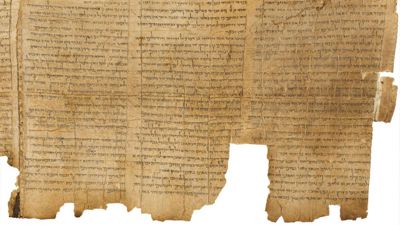
The Isaiah Scroll
One event was the finding of the Dead Sea scrolls. These were these old manuscripts that had been hidden away in a cave up near the Dead Sea. Among them was a scroll of the Book of Isaiah. It was almost complete, apart from a few small damaged portions.
It was carbon dated and found to be over a thousand years older that the oldest Hebrew manuscript that we had up to that time. It is like it is about a thousand years before Muhammad, this scroll was written.
Now what’s even more amazing is that it was very close to the Book of Isaiah that we have today. Over the years copiers have very careful and very faithfully copied these ancient books. There is even evidence that the scrolls were carefully double checked for errors, to catch any scribal errors when copying.
Now these Dead Sea scrolls have been dated to between 350 BC and 100 BC. Isaiah, as a person, is dated to between 740 BC to 640 BC, using the life of King Hezekiah as a guide. So, the actual manuscript we have comes from about 300 years after Isaiah lived.
Now do you remember in the last video, # 18 on David and Solomon, Dr. Mazar was digging in the royal ruins on Mount Jerusalem.
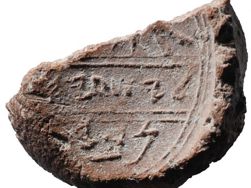
Hezekiah Bulla
She found a fascinating discovery. A bulla, or seal was found, bearing an impression depicting two-winged sun-disk flanked by Egyptian ankh symbols, and it containing a Hebrew inscription that reads “Belonging to Hezekiah, (son of) Ahaz, king of Judah.”
This bulla was discovered along with 33 other seals inside of that 10th-century BC building. And so the name Hezekiah exists there, and it may have been one that he personally held in his hand. So he existed as a person.
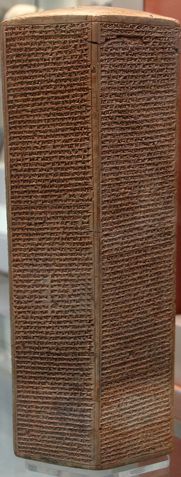
Sennacherib Inscription
Earlier, back in 1830s a clay object was found in Iraq with Akkadian writing on six sides. It contained the records of Sennacherib, King of Nineveh, who attacked King Hezekiah. It describes the siege of Jerusalem during the time of King Hezekiah, and names him, but it does not say anything about capturing Hezekiah. This is because, in the Biblical story, God destroys Sennacherib’s army, and he returns home without taking the city.
So this six sided record of Sennacherib and his reign brags of taking many cities, and capturing many people, it names them but it does not say that he captured Hezekiah. After he returned home, one of his sons, Esarhaddon, remember him, EsarHaddon, he rebelled, killed his father and took over the throne.
Now, about a couple of meters away, in 2009, archeologists uncovered another seal. This one was broken, but archeologists could make out the name Yesha’-yahu in Hebrew, This is the name Isaiah in the Hebrew language. Also on the seal are three letters, nvy. - Nevi or in Arabic Nebi. And this is the word Prophet, and this is how it is written.
Now in Hebrew, usually it has an aleph at the front, but in some cases it is written without the alaph. So there we have it saying nebi Isaha’ya.
That is in Arabic. And it gives his name Yesha’-yahu and it is there. Now we don’t know of anybody else with the name Isaiah that might have been there, back at that time, who would have had a seal. And so it is most likely the seal of the prophet Isaiah. Because he was there in the palace, very close to King Hezekiah.
Then in 2017, another archeological discovery happened. In the ancient city of Nineveh, known as Mosul, in modern day Iraq, there is a monument dedicated the prophet Jonah. Centuries ago this was a church, but it was transformed into a mosque. It is quite a large structure and dominates that part of the city.
This story has a strange twist. During the war with ISIS or da’ash, the ISIS soldiers exploded and destroyed the Tomb of Jonah in Mosul and if you want to learn more, I have some more things about Jonah on this website that talks about him and the orientation of that mosque.
Then the ISIS fighters, they looted the ruins, looking for gold or treasure. They were convinced that there must be more, they began to dig a series of tunnels under the ruins, looking for ancient artifacts that they could plunder and sell for cash.
No one knows what priceless things were taken and sold, but when the Iraqi army liberated the area, they discovered four tunnels. And in those tunnels, archeologists uncovered seven ancient inscriptions dating back 2,700 years back to an Assyrian king.
You see, when the Iraqi army liberated the area from ISIS they called in archaeologists who announced that while exploring the tunnels they had unexpectedly discovered the ruins of the Assyrian palace located under Jonah’s tomb.
In the palace they discovered inscriptions which describe the rule of the Assyrian king, Esarhaddon who reigned between 681 and 669 BC and who is mentioned in the Bible in the story of Isaiah in 2 Kings and also mentioned by name in the Book of Isaiah. (2 Kings 19:37, Isaiah 37:38)
One of the inscriptions found in the tunnels, about this king, it is translated this way: “The palace of Esar-haddon, strong king, king of the world, king of Assyria, governor of Babylon, king of Sumer and Akkad, king of the kings of lower Egypt, upper Egypt and Kush.”
Now, why do I bring this up? I want to show you that the story of Isaiah fits into actual recorded history. There is archeological proof that the events recorded in the book of Kings in the Bible and in the book of Isaiah did take place.
You see, the stories of the prophets are not just made-up stories written much later. There is too much detail that is being confirmed today. As archeologists dig deeper, more and more evidence turns up to support the history of the prophets.
Now, two things before we end. First, note that Isaiah was a prophet to many people, not just one group of people. This is a small point, but it‘s an important point. Today there is a popular idea that’s circulating among Muslims that different prophet came, each to different people, but Muhammad came to the whole world. I have heard this many different times as I have talked to people.
But when we examine the writings of the prophets, and Isaiah is a very good example, and we have the ancient scripts and we have the evidence. We find in Isaiah, that Isaiah is a prophet to many people. He prophecies and speaks the Egyptians, and he warns them. He speaks to the Assyrians and he warns them. He speaks to the Edomites, and to the Moabites, and to the Ammonites. He speaks to the Jews, and to many other peoples. And so it is not that each prophet each came to speak to a certain people. All of the prophets came… it is more that prophets came at different times. You need to have a concept of history. God is sending prophets at different times. And God has always had a small handful of people who spoke out for him, even though the majority of people don’t listen.
Now, the last point, in this book about the Prophecies of Isaiah that we want to make, is important to Muslims, and to Jews, and to Christians.
You see Isaiah prophesize many things about the coming, Messiah. The word Messiah means the anointed one. Anointing was done when oil was poured over the head of a special person, perhaps to make him a king or a ruler, or a special religious leader. Way back in Leviticus, the third book of Moses, God tells Moses to anoint Aaron with a special oil, to make him the High Priest or leading religious figure in the country. It was his job to intercede before God for the people. And so he was an anointed one.
In the same way, the Jews have looked forward to someone coming, this anointed one; someone special who would lead their people into the truth.
Now the Jews do not look back to anyone who has come yet, as being the Messiah or anointed one. That’s the big difference between the Jews and the Christians. So the Christians look to Jesus as being this anointed one, the Messiah, who not only came with a message but who would fix things that went wrong in the Garden of Eden. He would be the one that all of the prophets spoke about, and would be the last of the prophets, indeed more than a prophet from God.
Muslims, on the other hand look to Muhammad as the last one of the prophets. And this is one of the big issues between Muslims and Christians. Christians say that Jesus was the last and final. And Muslims say that Muhammad was the last and the final.
And both of them include the Book of Isaiah and the Prophecies of Isaiah as being part of their evidence. So that is why this prophet is so important to us.
Now there are a number of different schools of thought when it comes to this prophet. There are of course some who say that Isaiah is not important. The book was written later, maybe by several different people, who tried to make their writings look like they were written earlier. The people who claim these things are usually unbelievers, and usually not people of faith.
Then there are Christians who accept the book of Isaiah, and embrace the prophecies, and understand that they point to Jesus the Messiah. And, there are hundreds of millions of people, if not billions who believe this and many Muslims support that Jesus is prophesied about in the Book of Isaiah. That is why everyone should read it.
But there are also Muslims who have come forward and said that they see prophecies of Muhammad in the book, as well as those of Jesus.
So Isaiah is a place of theological conflict where the different faiths disagree. This is why it is an important book for us to study.
Now Bukhari has an interesting story. Amr bin al-Aas tells us that he believes Muhammad is mentioned in the Torah. He claimed that the Torah said this of the prophet Muhammad. (Bukhari 3:335)
“’O Prophet! We have sent you as a witness, and a giver of glad tidings, And a warner, and guardian of the illiterates. You are my slave and my messenger. I have named you ‘al-Muta-wakkil’ You are neither discourteous, harsh, nor a noise-maker in the markets; You do not do evil to those who do evil to you, but you deal with them with forgiveness and kindness. Allah will not let him die till he makes upright the crooked people by making them say: None has the right to be worshipped but Allah, with which will be opened blind eyes, deaf ears and the enveloped hearts.”
Now some Muslim teachers claim from this hadith, that anyone who is familiar with the book of Isaiah should recognize this as coming from chapter 42 of Isaiah, and that it refers to Muhammad. And they argue that the Arabs of the 7th century, way down there in Mecca would not have had access to the writings of Isaiah. And how could Muhammad so closely match what Isaiah wrote? They claim this is a proof for Muhammad, and demonstrates that Isaiah predicted his coming.
The whole thing hinges on the argument that: these Arabs are from way down in Mecca in the desert, and could not have known about the Book of Isaiah or heard it quoted. So how did something come around that is so close? However, I don’t think it is very close, first, and second …this arguments starts to call apart when we place the story in Petra, not Mecca. The story of Petra, if you go there, in that city there are four churches there in a Christian sector, there were Christian tombs there, and there was friction between the Christians and the Polytheists, so there is a very good chance that people would have heard about the Book of the Prophecies of Isaiah and would have heard Christians argue about Jesus and giving proof for him from the book of Isaiah.
In the very same way, they might have also wanted to use something from Isaiah to argue in favor of Muhammad. And so they chose chapter 42. Years later it seems like a miracle if you put the story way down in far off Mecca in Saudi. But to place the story in Petra, then the argument begins to fall apart. Now, why am I saying all this? Friends, this is a warning. Moving the location of Muhammad from Mecca to Petra is not a simple thing. It will impact Muslim theology. Old arguments that stood under the Mecca version of the story will not stand necessarily under the Petra version of the story.
If you have a chance, read the Book of the Prophecies of Isaiah or Ashiya in Arabic, and ah, read the stories of him. Listen to his prophecies. He speaks to many different nations.
Do you find Muhammad in the book of Isaiah or do you find Jesus? Who do you think the prophet is speaking about? It is important to go back and look at the entire book and see who is he speaking about throughout the book.
For instance, turn to Isaiah 11. He tells us that the one who is coming will be a descendant of Jesse. This is the name of David’s father: King David’s father. He is mentioned twice in this chapter 11.
Look at chapter seven verse 14 in Isaiah. Therefore the Lord himself will give you a sign: The virgin will be with child and will give birth to a son, and will call him Immanuel. The name Emmanuel means God With Us. Isaiah is pointing to Jesus. You can read this all the way through the book. And there are lots of places if you look on the internet. Lots of different charts that show all the things that point to Jesus.
Look at chapter 53. Who is the prophet speaking about? He was despised and rejected by men, a man of sorrows, and familiar with suffering. He took up our infirmities and carried our sorrows, yet we considered him stricken by God, smitten by him, and afflicted. But he was pierced for our transgressions, he was crushed for our iniquities; the punishment that brought us peace, was upon him, and by his wounds we are healed.
The Prophet Isaiah goes on: We all, like sheep, have gone astray, each of us has turned to his own way; and the LORD has laid on him, (That’s this coming messiah) the iniquity of us all. He was oppressed and afflicted, yet he did not open his mouth; he was led like a lamb to the slaughter, and as a sheep before her shearers is silent, so he did not open his mouth. He was assigned a grave with the wicked, and with the rich in his death, though he had done no violence, nor was any deceit in his mouth. Yet it was the LORD’s will to crush him and make him to suffer, for the LORD makes his life a guilt offering.
This is all about Jesus. This is what Christians quote. These verses do not foretell about Muhammad, but rather they point to the coming Messiah. And they are famous. All Christians everywhere they hear these verses, they are quoted over and over again in Christian circles.
So in review: there is not a single mention of Isaiah in the Qur’an or in the Hadiths; at least not by name. And in the Christian scriptures, Isaiah is a very important prophet, as he clearly points to Jesus as the coming Messiah or anointed one, and it even calls him: Emmanuel, God with us. That is a very powerful statement. This is all in the Book of Isaiah in the Bible.
I say that, not just because I am a follower of Jesus, but because I have searched the writings of the prophets, looking for the one that they predicted would come. I found my answer in Jesus Christ. Where do you find your answer?
I am Dan Gibson, and this has been another video in the series Archeology and Islam.
Also see: The Chronology of Isaiah: https://nabataea.net/explore/biblical_studies/biblicalhistory/the-chronology-of-the-book-of-isaiah/
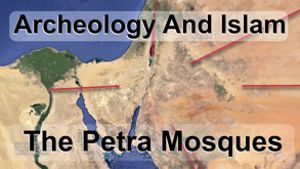
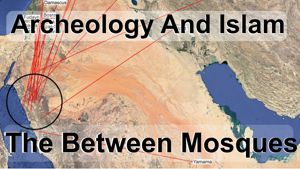
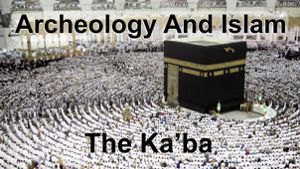
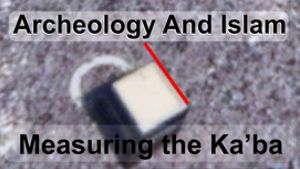
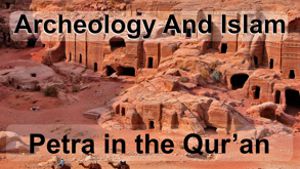
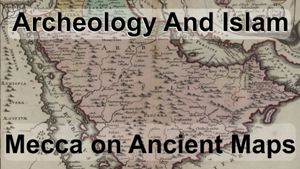
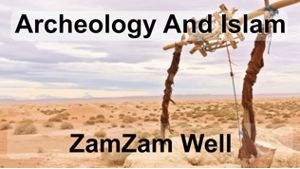
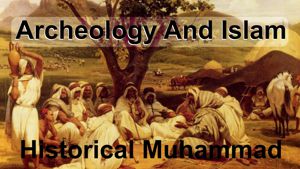
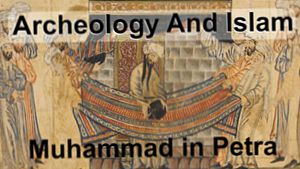
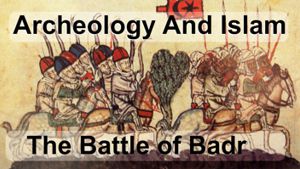
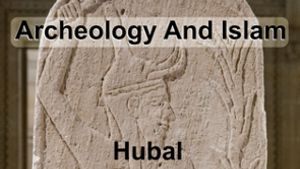
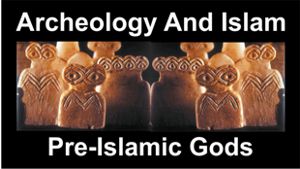

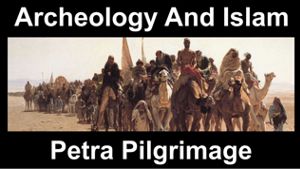


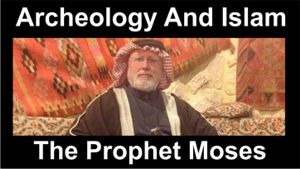


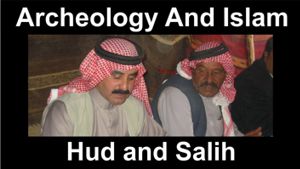
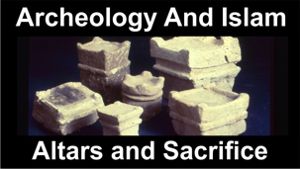

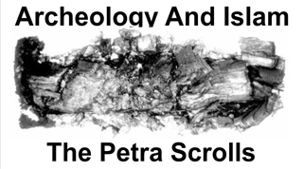
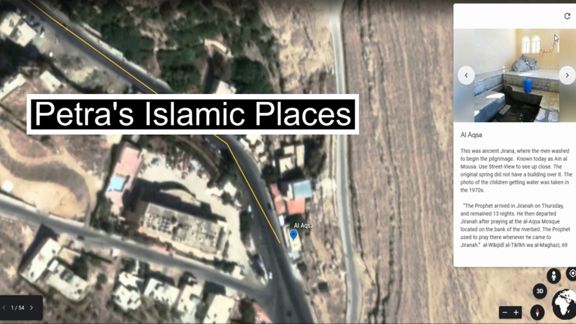
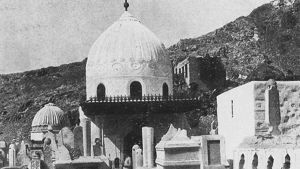
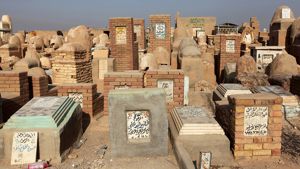
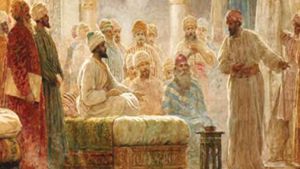
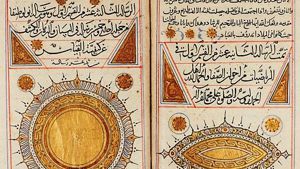
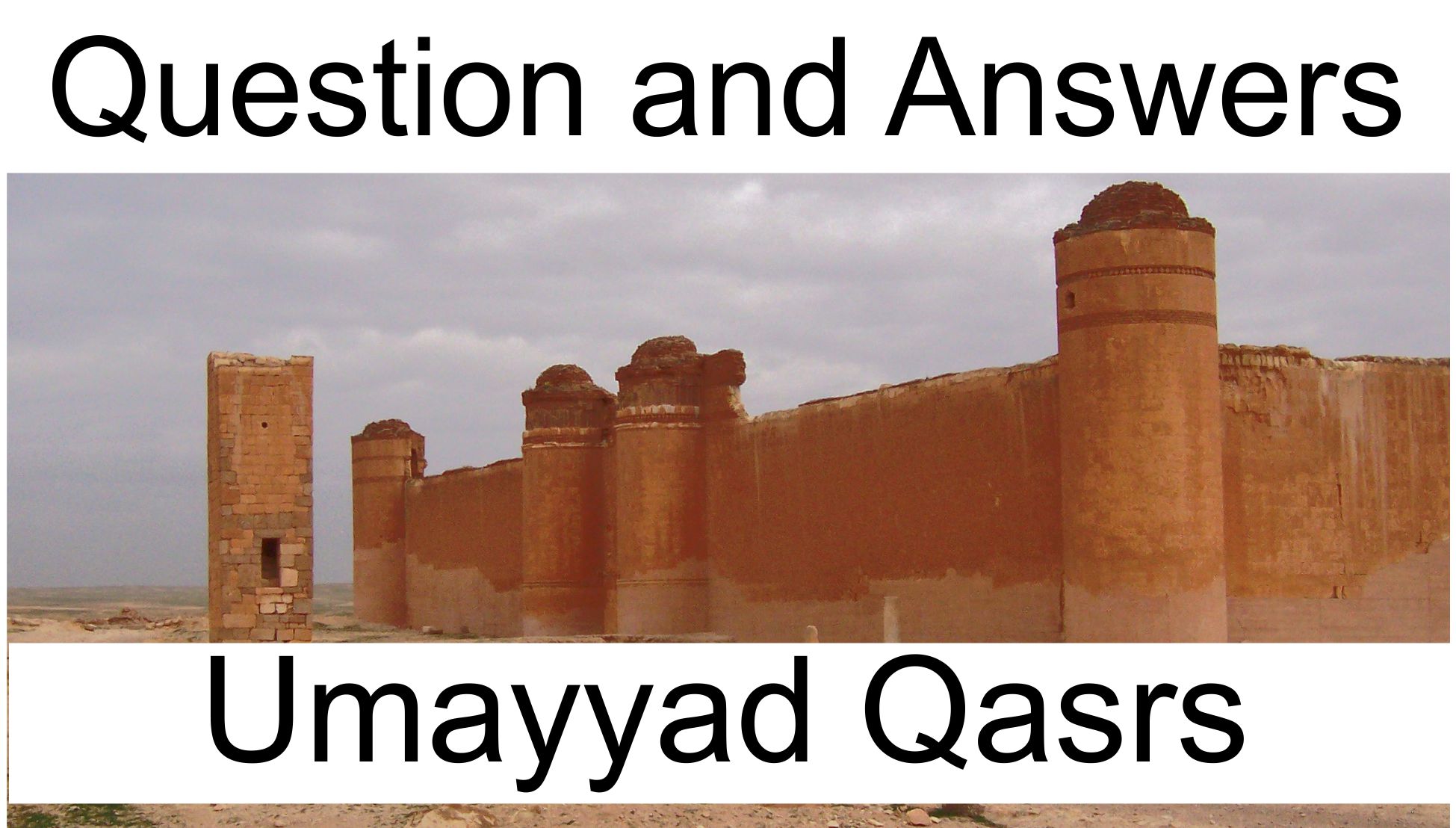
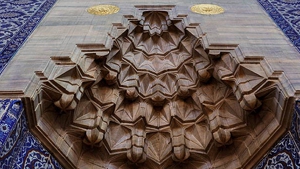
Page Discussion
Membership is required to comment. Membership is free of charge and available to everyone over the age of 16. Just click SignUp, or make a comment below. You will need a user name and a password. The system will automatically send a code to your email address. It should arrive in a few minutes. Enter the code, and you are finished.
Members who post adverts or use inappropriate language or make disrespectful comments will have their membership removed and be barred from the site. By becoming a member you agree to our Terms of Use and our Privacy, Cookies & Ad Policies. Remember that we will never, under any circumstances, sell or give your email address or private information to anyone unless required by law. Please keep your comments on topic. Thanks!